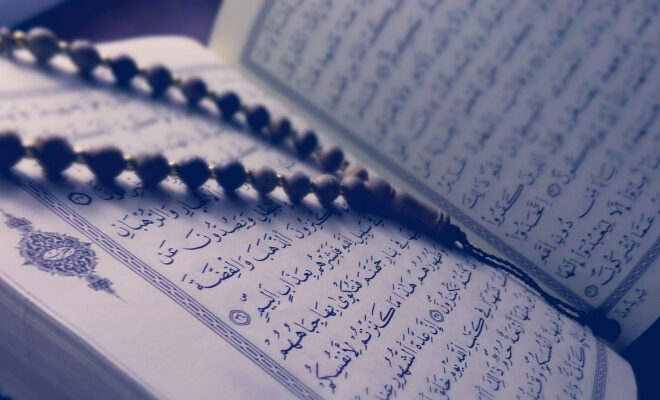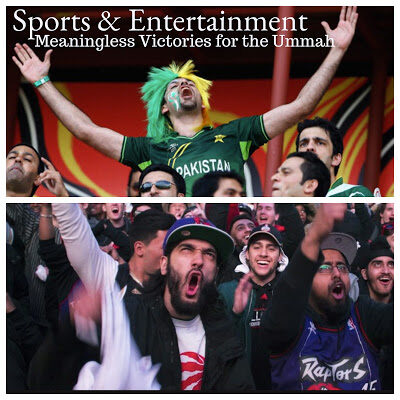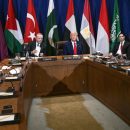The Ulema: Heirs of the Prophets

A nation’s greatest wealth is not its material achievements, such as its cities, industries, or technological advancements. Rather, the real and greatest wealth of a nation are its thoughts. Its thoughts form the basis of its ideology and, in turn, its fundamental beliefs about reality and its systems (e.g., legal system, economic system, etc.). Thus, the most valuable possession of the Muslim Ummah is her Deen, Islam. Seeing that the Ummah fully embraces its Deen, and in turn, entirely implements its rules on an individual and collective level, should be the objective of every single Muslim.
Allah (SWT) described the Muslim Ummah as “the witnesses over mankind” [TMQ 2:143] Understanding this great purpose and honour, it becomes key for the Ummah to have a deep and complete understanding of their Deen such that they find detailed guidance on how to manifest it into reality in it.
The Ulema (scholars) of Islam have a vital role to play in leading this Ummah to achieve its purpose. The Ulema are the scholars who carry a deep understanding of the Qur’an and Sunnah, and the related issues to it. They strive to embody the behaviour and demeanour of the Prophet Muhammad (SAW). For indeed, the Messenger of Allah (SAW) has described the Ulema as the inheritors of the Prophets. He (SAW) said, “The superiority of the learned man (Alim) over the devout is like that of the moon, on the night when it is full, over the rest of the stars. The Ulema are the heirs of the Prophets, and the Prophets leave neither dinar nor dirham, leaving only knowledge, and he who takes it takes an abundant portion.” [Abu Dawud].
The word heir refers to as “a person inheriting and continuing the legacy of a predecessor”.
However, the reality is that there are some from amongst the Ulema who have unfortunately been active in delegitimizing the work aimed at freeing the Ummah of the colonial powers and their agent rulers. Not only that, but these same people also knowingly or unknowingly undermine the call for the Khilafah system. This ranges from reducing the priority of Islamic activism, or worse, being direct puppets of non-Islamic regimes.
This raises the question: What is the actual role of the Ulema in leading the Ummah?
Social Media Following is Not a Measure of a Scholar
With the social media era we live in, we find the title of ‘Shaykh’, ‘Imam’, and ‘Ustadh’ given to individuals either by themselves or by the members of the Muslim community. They may possess degrees in Islamic studies, or acknowledgments from senior scholars to teach on their behalf.
However, without a legitimate Khilafah state, it creates a “free market” of sorts for many to either claim or be considered as an authority in Islam while they are undeserving of such a status, opening the door for misguidance. This is because the Khilafah would train Qadis (judges) to implement the Shariah, and have institutions based only on Islam for training these scholars. The Khilafah would also have checks and balances regarding opinions made by Ulema and see if they are within the valid ikhtilaaf (difference of opinion) or if the opinion contradicts definite text (Qat’i) and take action to prevent spread of deviant opinions.
Sadly, we now see a reality where those who are studying the Deen and are pursuing Islamic qualifications are actively opposing Islamic activism aimed towards removing the secular-dominant world order and restoring Islam as a practical way of life.
Some of them accuse Islamic activists of being ignorant, biased, having a sectarian agenda, and goals beyond the scope of Islam. Instead, they claim that if Islamic activists sought guidance from Ulema or acquired knowledge in the Islamic sciences (e.g., Arabic language and grammar, Tafsir, Hadith, Mantiq, etc), they would see that the call of Khilafah is not of primary importance. They would, instead, focus on inward local or individualized issues. They also downplay or ignore the fact that these Islamic movements were founded by traditionally trained Ulema with degrees from known universities.
In the social media-era we live in today, there is a phenomenon of “Ulema” being crowned based on their number of view-counts, the number of followers, and how much they entertain their crowd. In other words, they are only qualified due to public perception, but not the attributes which Allah and his Messenger (SAW) has described.
Moreover, it is important to note the influence of the nationalistic, non-Islamic regimes on the quality of the scholarship we see today in the Muslim lands, such as the likes of Saudi Arabia, Egypt and so on. The goal of these regimes is to produce, at most, pure academic scholars who are restricted to only educating and, just as importantly, preventing the rise of Ulema who want to revive or restore the Islamic way of life.
The colonialist powers, like Britain and America, fully understood the influence the Ulema had on the Ummah. One example of it is how Britain steered the rise of Muhammad Abduh in Egypt as its Grand Mufti in 1899. In turn, he made interest/riba- based loans acceptable, and reformed the education system of al-Azhar so that it aligned with colonial projects in our lands.
Who are the Ulema?
So, how does Islam view the role and the qualities of the Ulema?
The term, Ulema refers to those who are scholars in the sciences of the Shariah, and in the Deen of Islam. Ibn Qayyim (rh) mentions the Ulema are “The fuqaha (jurists) of Islam who understand the fatawa (legal rules passed) and the differences between them, they specialize in deriving the Ahkaam (laws) and focus on preserving what is Halal and Haram”
Their Knowledge Leads Them to Fear Allah
Allah (SWT) says,
It is only those who have knowledge (ulema) among His slaves that fear Allâh. Verily, Allâh is All-Mighty, Oft-Forgiving. [TMQ 35:28]
Ibn Mas’ood (ra) commented “Knowledge is not only by gathering vast amounts of hadith, but knowledge is only what leads to fearing Allah”. [Tafsir alSuyuti]
Delivering the Message of Allah
He (SWT) also mentions,
Those who convey the Message of Allâh and fear Him, and fear none save Allâh. And Sufficient is Allâh as a Reckoner. [TMQ 33:39]
Ibn Kathir (rh) mentions in his tafseer that, “Allah praises those who convey his message to his creation and fulfill their covenants and they only fear Allah and none other than him; such that the repercussion of any power possessing individual does not prevent him from conveying the message of Allah and Allah is indeed the one who provides Support and helps such servants.”
Allah Has Taken a Covenant from the Ulema
(And remember) when Allâh took a covenant from those who were given the Scripture to make it known and clear to mankind, and not to hide it. [TMQ 3:187]
Al-Hasan alBasri (rh) mentioned “had it not been for the covenant Allah had taken from the people of knowledge, I would have not told you about many of the things you have asked me about.” Imam Al-Aloosi (rh) stated: “It is derived from this verse the obligation of making Knowledge apparent and the prohibition of hiding anything from the matters of Deen for a corrupt objective” He then mentions the hadith where the Prophet (SAW) mentions “He who is asked something he knows and conceals it will have a bridle (headgear for a horse) of Fire put on him on the Day of Qiyamah”. [Abu Dawud]
Ulema are the Heirs of the Prophet (SAW)
As mentioned earlier in the Hadith, “The Ulema are the heirs of the Prophets, and the Prophets”. The Ulema in Islam have a high and honourable position in Islam as they are the heirs of the Prophets in knowledge and action, their dawah, clarifying the Shariah, and establishing the Deen. Al-Zamakshari (rh) in his Kashaf says, “They are called heirs of the Prophets because of their closeness to them in honour and rank, and they are engaged in carrying forward and implementing what the Prophets were sent for”.
Role of the Ulema in Absence of the Islamic Rule
In the absence of the Islamic State and the Caliph which is the time we are currently living in, Imam al-Haramain alJuwany (rh) stated “If a time passes without an Imam and there is not Sultan who is capable to giving material support and is a capable ruler, then the matters are then delegated to the Ulema and it is imperative on the creation (Muslims) despite their differences to return to the Ulema and that they should take all their matters of Wilayah (duties) to the Ulema for them to judge, if they do that they will be guided to the straight path and become Ulema of the Land and Protectors of the Slaves’’ (Al-Giyathee Giyath alUmam). Al-Juwany illustrates the Ulema are the natural leaders when the Khilafah is not present on what the Ummah should prioritize and do.
Need for Ulema Rabbani to Lead the Ummah
Allah SWT says;
“Be you Rabbâniyyûn (learned men of religion who practise what they know and also preach to others), because you are teaching the Book, and you are studying it.” [TMQ 3:79}
Imam al-Qurtubi (rh) says Rabbani comes from the word
al-Rubb (Lord) and the Rabbani is the one who nurtures and raises the people with their knowledge from their childhood to their adulthood. In other words, it leads to generational change. Another meaning given is they manage the matters of the people and reform it. The word Rabbani even has a political aspect as the linguistic meaning of Rabba has meaning of management; so, the Alim Rabbani manages the people’s affairs and reforms it and manages it. In order words the difference between the academic scholar who at best are walking textbooks and can tell you a historical piece of information or evidence; the Alim Rabbani works with the Ummah, concerns himself with their affairs and seeks to bring Islaah (reform, and renew) the Ummah’s situation with what Allah (SWT) has revealed. Imam ar-Razi (rh) described that the Rabanni scholar as the one who “Calls to all actions that bring forth the pleasure of Allah and Turn away the people from all actions that bring forth the Punishment of Allah.”
Indeed, the Ulema are the natural leaders of the Ummah, and their work and efforts are directly linked with that of Islamic activists who seek to bring forth the establishment of the Deen of Allah (SWT) on Earth and the removal of man-made systems in the Muslim Lands.
This goal cannot be practically manifested except with the establishment of the Khilafah, the Islamic State, that Allah (SWT) has commanded and promised the believers. For those who have studied and classify themselves as Ulema and are active in negating the call for the Khilafah, and who mock and belittle the callers to Islamic revival and stand against exposing the plans of the Capitalist Nations and their agent rulers in the Muslim Lands, indeed they are standing as a barrier to the path of Allah.
Indeed, Allah has warned the previous scholars of the nations that passed that indeed it is of grave danger for them as he said;
Say: “O people of the Scripture! Why do you stop those who have believed, from the Path of Allâh, seeking to make it seem crooked, while you (yourselves) are? And Allâh is not unaware of what you do.” [TMQ 3:99]
Role for the Ummah
The Muslims of this Ummah must be objective and evaluate anything we hear from our scholars as commanded by Allah (SWT). We should not be made to feel belittled or ridiculed when we ask questions about what the scholars are presenting as solutions for the Ummah and what our priorities should be. Rather we should understand if we are indeed in the presence of Ulema who the inheritors of the Prophets are; they will be at the service of the Ummah seeking to help guide her and be an active supporter of the global cause of Islam in opposition to the plans and plots of the enemies of the Ummah.
Furthermore, if we see that they are indeed true supporters of the Muslims and are engaged in organized work to revive the Ummah in a method that confirms to the commands of the Qur’an and Sunnah and conforms with the Life of the Prophet Muhammad (SAW), we should not sit back and be observers. Rather we must become active participants in the bringing forth the victory of Islam. Let us follow the footsteps of the Prophets (as) and the righteous Ulema of the past and work with the scholars who are leading to the Haqq and assist them in their mission.
Then when ‘Îsâ came to know of their disbelief (of his people), he said: “Who will be my helpers in Allah’s Cause?” Al-Hawâriyyûn (the disciples) said: “We are the helpers of Allah; we believe in Allah, and bear witness that we are Muslims.” [TMQ 3 :52]









